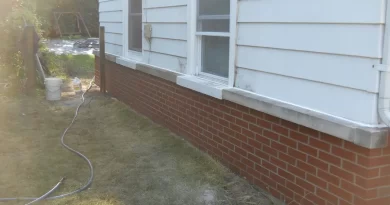A Guide to Planting and Caring For Your Garden
A well-tended garden is a joy to behold but can also be a time-consuming chore. Scout frequently for plant damage and disease and intervene early. Check plants for ripening or fruit set, and support tall crops with a stake or trellis.
To meet consumers’ increasing expectations, garden centers improved heavily on services and broadened their product assortments. Investigation shows, however, that these innovative ideas mainly improve an existing business model.
Gardening Tools
Whether you are a beginning gardener or an experienced horticulturist, having the right gardening tools makes all the difference. These are the tools that every gardener relies on to maintain healthy gardens that grow fresh fruits, vegetables, and flowers.
Shovels: Various-sized shovels are essential for different garden tasks, from digging holes to moving large clumps of soil. Look for a shovel that has solid construction with few seams to prevent rust and water damage.
Rakes: A good rake can be used for everything from smoothing the soil after spading to collecting and removing vegetation from the yard or garden. If you need a heavy-duty rake, choose one with sturdy metal tines that can pierce tough soil.
For long sessions of weeding and planting, a kneeling pad or seat is necessary for protecting your back and shoulders. Labels that withstand weather and harsh sunlight are a great way to identify plants while adding an attractive decorative element to the garden.
Planting Supplies
A good garden center should offer various gardening products to suit the needs of its customers. These items might be a bag of potting soil, seeds, or fertilizers. The gardener may also need tools to prune, water, or fight off destructive insects. The horticultural supplies can be displayed using benches, racks, and hooks from the ceiling.
Choosing a suitable inventory management method is crucial for the garden center. A POS system that allows merchants to cross-sell their products will boost sales. For instance, customers might want to buy two bags of potting soil and their new Dracena plant.
Many garden centers will sell plants too large for their original containers at the end of the growing season. They’re also likely to cut prices to clear out the remaining stock. If you see a bargain, nab it!
Fertilizers
Plants need a steady supply of nutrients to thrive. Fertilizers help boost natural soil fertility or replace previous crops’ depleted chemicals. Fertilizers are available in various forms and concentrations to suit the needs of different plants and gardening situations.
Local garden center offer a wide selection of fertilizers for sale. They may be granular or liquid and classified as organic or inorganic. Organic fertilizers are derived from crop leftovers and animal manures and slurries. Their nutrient value varies depending on the source of the manure and the farming practices used.
Be sure to use the results of a soil test before purchasing or applying any fertilizer. This will ensure that you save money on fertilizers your garden doesn’t need or overdoing it and damaging the plants. Most importantly, remember to water well when applying any fertilizer to prevent burning and foliar burn.
Weed Control
Weeds steal vital nutrients, sunlight, and space from the vegetables you are trying to grow. They also provide a hiding place for diseases and insect pests, making them challenging in the garden. Using cultural strategies instead of chemical controls is more effective and safer for the gardener and the environment.
Weeds are more accessible to control in the early spring before they can germinate and produce seeds. Run a tiller over the proposed vegetable garden site two to four weeks before planting. This purposefully brings weed seeds to the surface and allows you to kill them by hoeing light cultivation or flame weeding. This technique is called preparing a stale seedbed.
Adding organic matter like rotted manure or compost reduces weed growth by introducing a variety of competing microbes to the soil. Providing annual aeration to the soil also keeps weeds at bay by preventing them from getting too deep in the ground.




